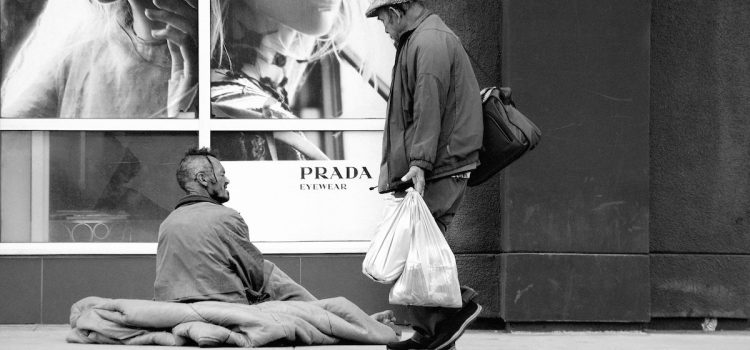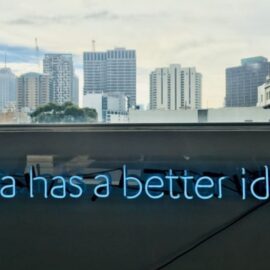

This article is an excerpt from the Shortform book guide to "Enlightenment Now" by Steven Pinker. Shortform has the world's best summaries and analyses of books you should be reading.
Like this article? Sign up for a free trial here.
What is the status of—and the outlook for—the global distribution of wealth? Are the rich getting richer and the poor getting poorer?
Steven Pinker wants to set the record straight on wealth and inequality in the world. He presents compelling data regarding inequality, poverty, and social spending that might come as a surprise to many.
Continue reading to learn Pinker’s argument and for a brief discussion of the prospect of a Universal Basic Income.
The Global Distribution of Wealth
Pinker says that it’s a mistake to think that inequality in itself is a bad thing. He argues that inequality in the global distribution of wealth isn’t a problem in itself because it doesn’t matter how much money rich people have as long as everyone has enough. For example, if the richest people in society triple their wealth and the poorest people double their wealth, that may make the inequality between the richest and the poorest greater, but it still means everyone is better off. So the problem, he says, is poverty, not inequality. A more equal society isn’t necessarily good either, he argues, because the things that tend to level societies are tyrannical leaders, war, disease, and state collapse.
Pinker says the idea that “as the rich get richer, the poor get poorer” is actually false. The data shows that, all around the world, the rich have indeed gotten richer and the poor have also gotten richer, just to a lesser degree. Historically, Pinker tells us, worldwide inequality increased dramatically starting with the Industrial Revolution because that allowed some people to get very rich on others’ labor, creating major class gaps. But, since then, wealth has become more equally distributed again, as people in all classes have prospered.
The overall global pattern, Pinker says, shows that the lower and middle classes of poorer countries have improved their conditions steadily, along with the upper classes of richer countries. The lower-middle classes of the rich countries have not improved as much, though, and he argues that this causes Americans and Europeans (particularly in those classes that haven’t fared as well) to think conditions are not getting better. But Pinker says the U.K. and U.S. lower-middle classes just happen to be the worst off as far as gains. But, he says that, when we focus on the big picture, “the trade-off is worth it.”
(Shortform note: It can also be argued that inequality in wealth creates inequality in power, and that means the very wealthy tend to have a disproportionate amount of influence over the political process. And when this is inherited wealth, it can create a situation much like a nobility, with generations of families becoming a ruling class. Improving the economic situation of the poor and working class would not necessarily eliminate this power imbalance problem if the people at the top of the social structure still have vast amounts of wealth that those at the bottom never come close to reaching.)
Poverty Alleviation
One major mechanism for poverty alleviation in developed countries is taxation systems that charge a greater proportion to the wealthier groups and distribute it to the poorer ones through social programs, which Pinker says is a feature of modern capitalism. He says pre-modern/pre-capitalist societies did much less to help the poor.

———End of Preview———
Like what you just read? Read the rest of the world's best book summary and analysis of Steven Pinker's "Enlightenment Now" at Shortform.
Here's what you'll find in our full Enlightenment Now summary:
- How the world is actually getting better, not worse, over time
- Why people think the world is worse off than it is
- What Enlightenment values are and where they come from






